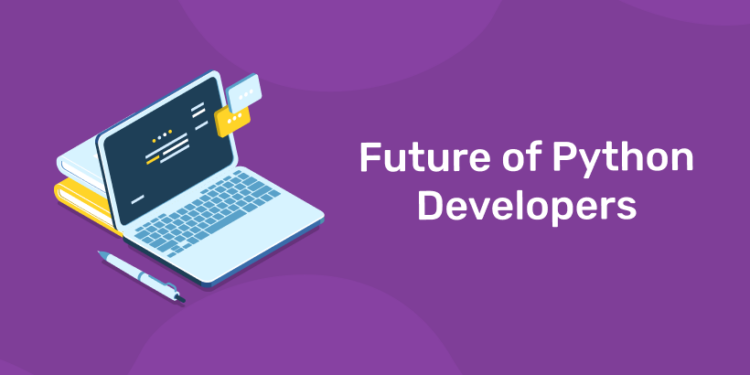Table of Contents
Currently, Python developers are making an average of $75k per year (average Indian salary around Rs. 5,00,000 per year), but it’s predicted that by 2024 the salary will have increased to $101k (average Indian salary around Rs.10,00,000) per year. This suggests that Python developers will be among the highest paid in 2024, compared to many other programming languages and jobs at that time. Moreover, because Python is open source software (as opposed to software like C++ or Java), companies can save themselves millions of dollars each year by using Python instead of these other options. This trend shows no signs of slowing down anytime soon, with more and more companies turning to Python each day. There are things you don’t know or have yet to learn. Don’t let that stop you from pursuing your dream career! You can never truly know everything about programming, but there are endless ways to continue learning and growing into your career. If you want it bad enough, you will find a way to make it happen!
Python Is Going To Fade Out?
The rise of GoLang, Kotlin, and other languages is killing python developer jobs. GoLang is going to take over as the most popular language. Many new tech companies will start using GoLang over python. The demand for go developers will increase as more companies start to use it. The demand for python developers will decrease because not many new companies are going to use it anymore. So good luck if you want a job as a python developer because many jobs might not be available by then since all new tech companies are going to use go lang.
Python? Do I Need To Learn That?
The rising popularity of Python has been on the upswing for some time now, and it’s not hard to see why. In a world where data scientists and developers are being valued more than ever, programmers that know how to use Python are in great demand. In fact, between 2016 and 2017, listings with Python as a desired skill grew by 22%, while listings that wanted skills from languages like Java and Ruby decreased. With new frameworks like Google Cloud Platform adding support for Python—and enterprise companies like Walmart moving over their operations—there is going to be even more demand for people who know their way around the language. For those trying to figure out whether or not learning Python will be worth it five years down the line, keep reading!
“Ready to take your python skills to the next level? Sign up for a free demo today!”
What Will Happen To applications?
The next decade will bring new developments to computer languages, meaning that applications written a decade ago might no longer work on current computers. Fortunately, all is not lost—even though you might have to install new operating systems and frameworks, your Python code will likely run unmodified. Even if it doesn’t run unmodified, chances are good that an updated version of your code will be able to call on libraries for more recent features. For example, if your app relies on a technology that hasn’t been invented yet (e.g., facial recognition), you can still access comparable technologies built on top of future programming languages.
Can You Still Work On Windows?
In five years, most organizations will still be using Windows XP because they won’t have moved to new hardware yet. Many businesses will opt to maintain older hardware rather than purchase new PCs and migrate users’ data over; many home users will keep their Windows XP machines too. As more end-of-life milestones are reached, we’ll see fewer applications released that support older versions of Windows; naturally many existing apps won’t run on newer versions so user data will become stranded on antiquated software. This means developers who want to keep working with a particular OS (or its component technologies) might have no choice but to stick with obsolete hardware running an outdated operating system just so they can continue working.
We Won’t Need So Many Developers. There Are Fewer Bugs Now.
According to PYPL, a ranking system that measures which programming languages are most popular based on how often language tutorials for those languages are searched for on Google, JavaScript is now both more popular than Python AND Java. This means there’s going to be less demand for experienced developers who know and use Python. To put it simply: There will be fewer bugs written in Python that need to be fixed by developers.
“Experience the power of our web development course with a free demo – enroll now!”
Wait, Why Do You Have To Use Java For Android Apps? Why Can’t We Use Python There As Well?
The main reason why you can’t use Python on Android is that Android is Java-based. So when you create an Android app, your files will be saved as .java files and not .py files. It’s more difficult to develop mobile apps using languages like Ruby or Python. That’s why many other developers decided to use Java for developing their own Android apps. Since it takes too much time for people to adapt and understand a new language, it’s more likely that developers are going to stick with what they already know (and love).
Wasn’t It Called Something Else Before?
The history of programming languages is long and murky, and few people can agree on what belongs where. But that hasn’t stopped language historians from trying to make sense of it all. Compilers and interpreters have been around since as early as 1950 (when German-born computer scientist Grace Hopper created one for BSAFE), but most would agree that modern programming began with COBOL, FORTRAN, and LISP. In 1958, John Backus developed a language called FOR MAC that he used to do research on compiler development at IBM’s Systems Research Institute (SRI). Backus went on to invent a new language for IBM: FORTRAN II.
I’m Really Comfortable With Objective-C.
Objective-C is a programming language used for developing applications for Mac OS X and iOS. Created by Stepan Korshak and Brad Cox, it was originally developed in 1984 as a general-purpose object-oriented extension to C. In 2007, Google announced they would be using Objective-C in their Android operating system’s software development kit (SDK). It has since become a popular language for mobile app development. Though Python can be used to develop mobile apps, it doesn’t have as much support as languages as Objective-C or Java do. If you’ve worked with Objective-C before and enjoy working with that language, you’ll have an advantage when applying for jobs that use Objective-C, particularly if you’re applying to work at companies like Apple or Google. If you are interested to learn new coding skills, the Entri app will help you to acquire them very easily. Entri app is following a structural study plan so that the students can learn very easily. If you don’t have a coding background, it won’t be any problem. You can download the Entri app from the google play store and enroll in your favorite course.
“Get hands-on with our python course – sign up for a free demo!”










